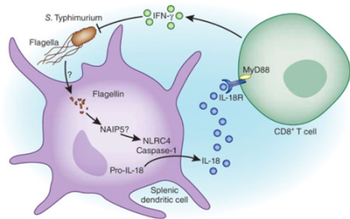
News















In 2011, there were two events at the Food and Drug Administration (FDA) headquarters where the key issues of medical device reprocessing were raised and discussed. The first event was put on by FDA staff, with an assist from the Association for the Advancement of Medical Instrumentation (AAMI). During this two-day meeting in June, a parade of industry experts presented their research and experience to describe the key challenges facing the healthcare industry when it comes to effective device reprocessing.













When disease-causing invaders like bacteria infect a human host, cells of various types swing into action, coordinating their activities to address the threat. In new research appearing in this months issue of the journal Nature Immunology, Roy Curtiss, director of the Center for Infectious Diseases and Vaccinology at the Biodesign Institute at Arizona State University, along with international collaborators, investigates the coordination of a particular type of immune response, involving the release of of IFN- a cell-signaling protein molecule known as a cytokine.
